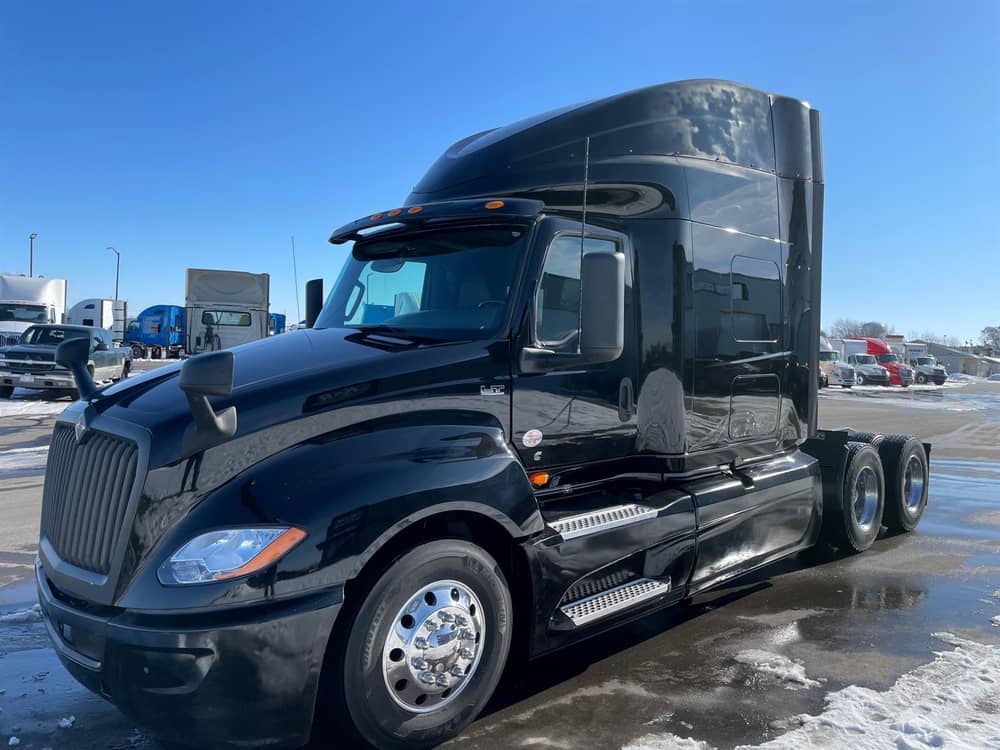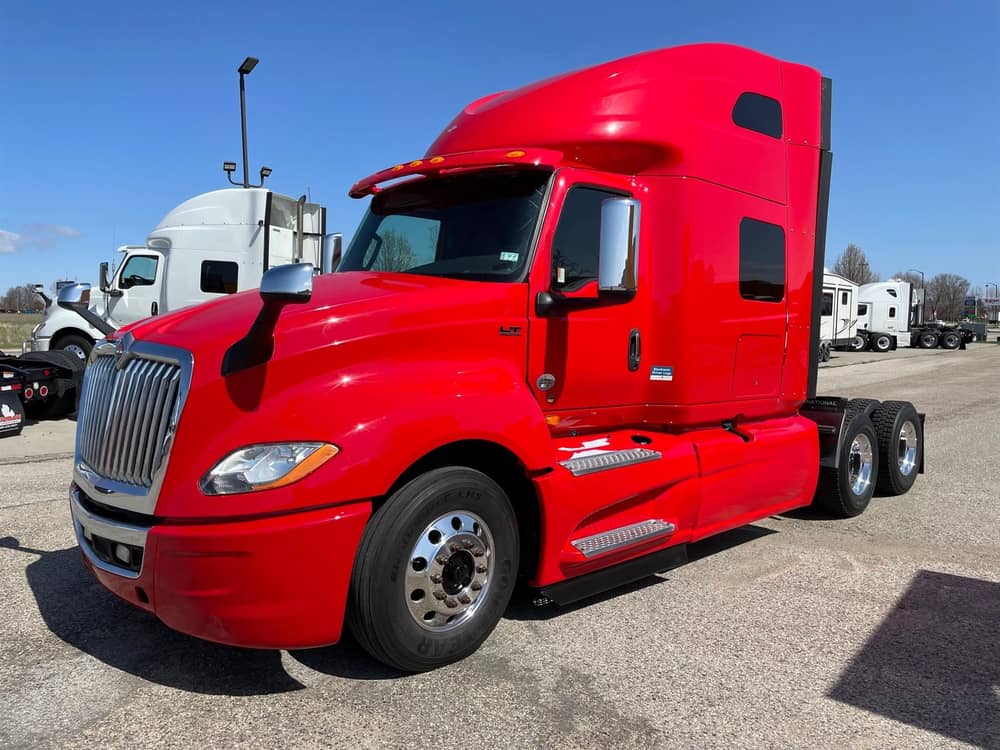The need for trucks among people nowadays is growing daily. Trucks have many advantages because of their adaptability, capacity, and mobility. You want to buy a truck for yourself, but the cost is still a mystery to you. Typically, your country’s car prices are higher than those in other nations. So why are international trucks so cheap?
There are many reasons that impact truck price directly. The difference in labor and manufacturing costs between nations is a major factor. Truck production can be done more cheaply in nations with lower production costs, resulting in more affordable trucks for sale.
Additionally, the cost structure is impacted by regional differences in legislation and emission standards. International trucks may be less expensive since they are produced in areas with less severe regulations, allowing for cheaper parts and production methods. Let’s discuss more about them in this article.
Why Are International Trucks So Cheap?

There are a number of variables that interact to influence the relative affordability of foreign trucks on the market for commercial vehicles worldwide. Check out the reasons we’ve listed below:
Manufacturing and Labor Costs
The difference in production and labor costs between nations is one of the main reasons for their cheaper price. Based on geographical economies, laws, and labor rates, production costs vary greatly. Trucks can be produced more cheaply in nations with reduced operational expenses, giving their goods a pricing advantage.
China is frequently linked to cheaper labor and manufacturing costs. In comparison to many other nations, China can make trucks at a lesser cost thanks to its sizable and effective manufacturing industry. Trucks made in China may therefore have a price advantage over those made elsewhere.
Regulatory Standards and Emission Requirements
Additionally, regional variations in regulatory norms and emission standards are a major factor in pricing differences. International trucks could seem more affordable in areas with laxer regulatory requirements. This enables the use of less priced parts and production techniques. Although this may result in cheaper initial costs, it’s critical to consider the long-term effects of either worse quality or higher operational expenses caused by inferior components.
India may have less strict emission limits than nations in the European Union because it is a rapidly developing nation. The level of sophisticated pollution control technology required by EU laws may not be applicable to trucks made in India. Due to the different emission standards, production expenses may be reduced, which would result in cheaper truck pricing.
Market Competition
Another factor influencing foreign trucks’ affordability is market rivalry. There are too many manufacturers competing for market share in the commercial vehicle business. Manufacturers are forced by the fierce rivalry to provide affordable solutions in order to draw customers and stay competitive. In an effort to differentiate their offerings, businesses may follow this up with price reductions and value-added features.
The commercial vehicle market in the US is quite competitive. A number of domestic and foreign firms battle for market share. In order to draw customers, manufacturers may offer discounts, unique promotions, or competitive pricing. As a result of this market competitiveness, trucks may be accessible in the United States for comparatively less money.
It’s important to remember that prices shouldn’t be the only factor considered while making judgments about what to buy. International trucks could be less expensive up front, but purchasers should think about the entire value.
What Factors Require Your Attention When Buying An International Truck?

Understanding all relevant factors is essential when buying an international vehicle. This guarantees that your choice is educated and in line with your specific needs and preferences. The following criteria will assist you in choosing a truck that fits your operational requirements and offers long-term value:
Emission Standards
Regional emission regulations differ. Check that the chosen truck meets the emission regulations of the operational location. To reduce your ecological footprint in areas with strict environmental laws, choose automobiles equipped with advanced emission control technologies.
Safety Features
Examine the truck’s adherence to important safety requirements in order to place safety first. To protect drivers, passengers, and other road users, features like airbags, anti-lock braking systems, electronic stability control, and collision avoidance technologies should be carefully examined.
Payload Limit
Construction, logistics, and agricultural industries all significantly rely on a truck’s payload capability. Verify that the truck is capable of carrying the loads unique to your industry. This contributes to ensuring smooth operational productivity.
Fuel Efficiency
It is impossible to overstate the effect that gasoline prices have on total operating costs. Select trucks with excellent fuel efficiency ratings. This reduces continuing expenses and leaves a smaller environmental legacy.
Reliability and Durability
Examine the truck’s track record for dependability and toughness. You should learn more about web reviews and market reports. They can offer insightful viewpoints on the truck’s long-term performance.
Adaptability
The truck’s configuration and potential add-ons might need to be customized based on the demands of your sector. Verify if the manufacturer gives design flexibility so you may customize the truck to meet your specific needs.
Resale Value
Analyze historical information about the chosen vehicle model’s resale value. A car with a high resale value is one that is well respected and is still in high demand even after extensive use.
Driver Comfort
For the welfare of the driver and operational effectiveness, especially on long-distance routes, a comfortable cabin is essential. Give emphasis on features that increase driver pleasure and efficiency.
Connectivity and Technology
Modern vehicles frequently feature cutting-edge telematics, GPS navigation, and entertainment systems. Both operational effectiveness and driver satisfaction can be significantly increased by these features.
Warranty and Post-Sale Assistance
Examine the breadth of the manufacturer’s after-sales service and the scope of the warranty coverage. A strong warranty offers assurance and protects against unanticipated repair costs.
Regulatory Conformity
Verify that the selected truck complies with any applicable laws. It includes weight restrictions, size requirements, safety guidelines, and any unique operational requirements.
Should I Buy Domestic Truck Or International Truck?
Choosing between domestic and foreign trucks for purchase depends on a number of variables. Here are some factors to take into account as you make your choice:
Purpose and Usage
Take the truck’s main use into account. Is it intended for personal, business, or a particular sector like agriculture, construction, or logistics? Different trucks are made to perform well in different applications.
Quality and Reputation
Consider both the reputation and performance of domestic and foreign truck manufacturers. To evaluate the overall quality of their products, read customer evaluations, industry reports, and reliability ratings.
Features and Technology
Compare the innovations, technology, and features that both domestic and foreign brands provide. Modern vehicles frequently have cutting-edge efficiency, communication, and safety features.
Pricing and Budget
Within your budget, compare the upfront prices of local and foreign vehicles. However, you should also take into account long-term costs, such as upkeep, fuel effectiveness, and possible resale value.
Industry Trends
Keep up with emerging players, technological advancements, and market trends in the trucking industry.
The decision of whether to purchase a domestic or foreign vehicle cannot be made in a generalized way. You should base your choice on a careful analysis of your unique requirements, evaluating the benefits and drawbacks of both solutions. It’s wise to test drive, evaluate, and speak with industry professionals about various models. Additionally, you should carefully consider how each choice fits with your immediate and long-term objectives.
Final Thoughts
International trucks are cost-effective due to a number of variables. Although the initial affordability may seem alluring, consumers should proceed carefully. It’s critical to strike a balance between reduced initial costs and long-term dependability, maintenance costs, and operational effectiveness. The real benefit of foreign trucks is their capacity to offer long-term cost reductions and performance excellence. Hope you can make a right decision.
